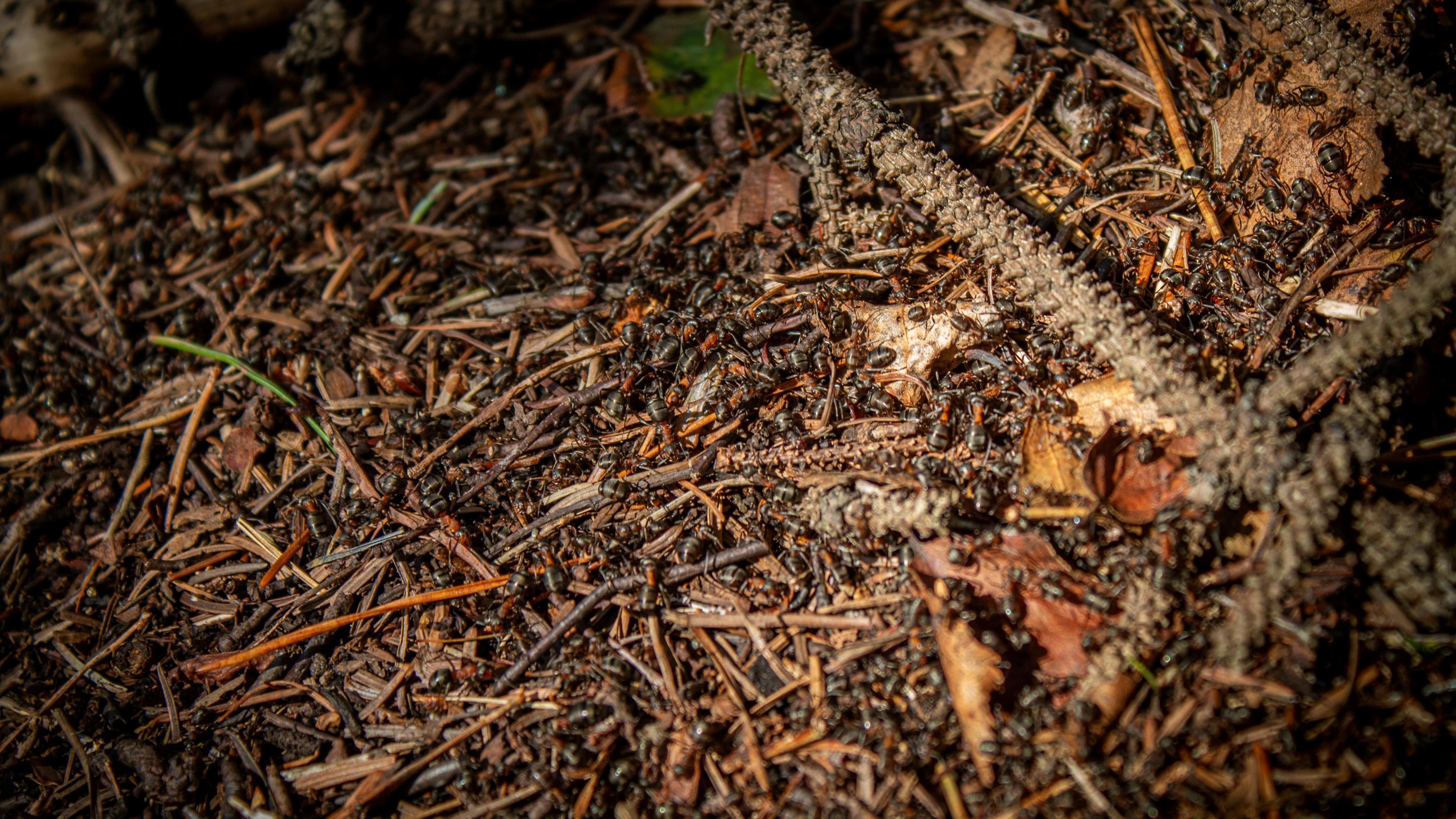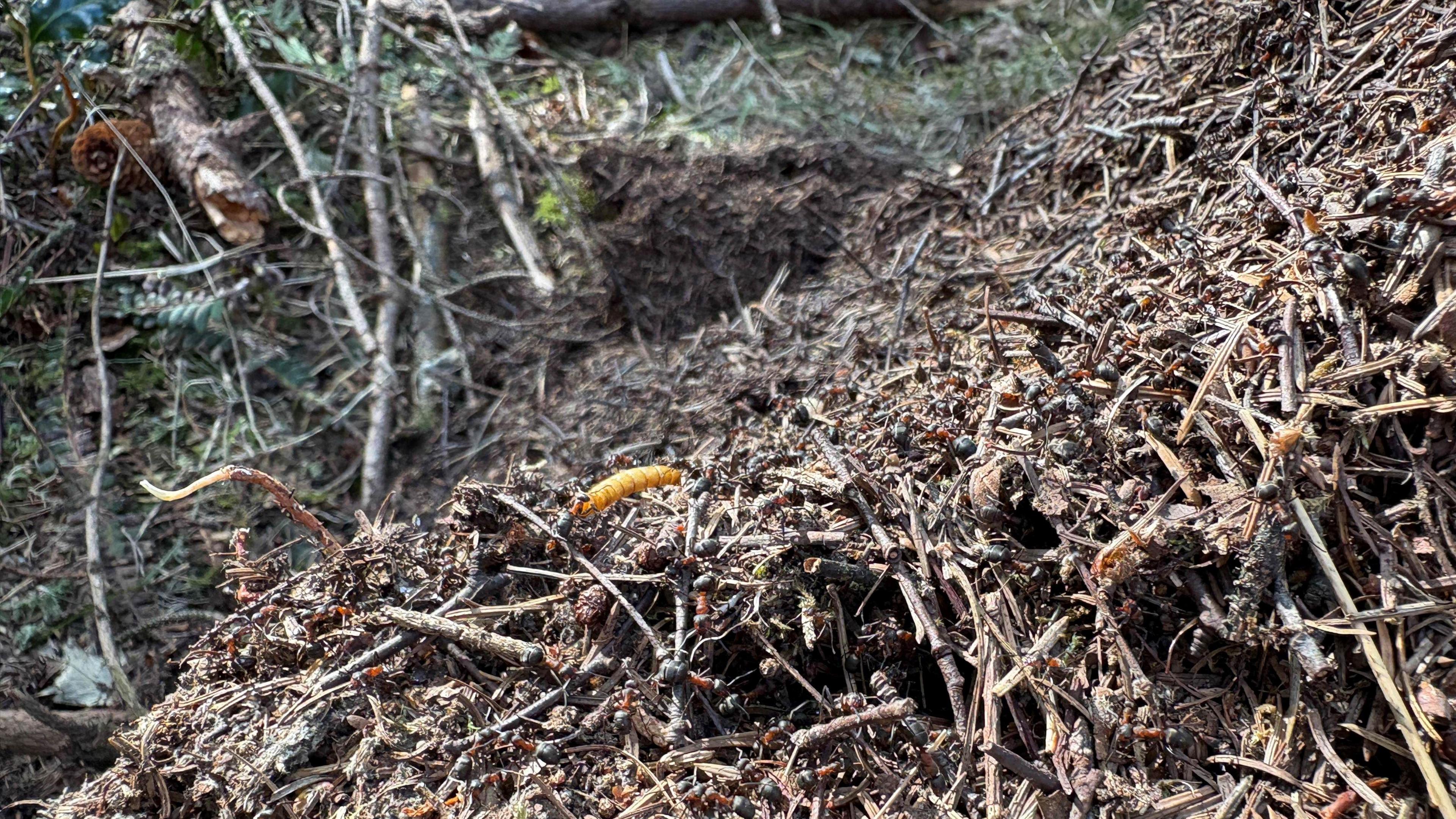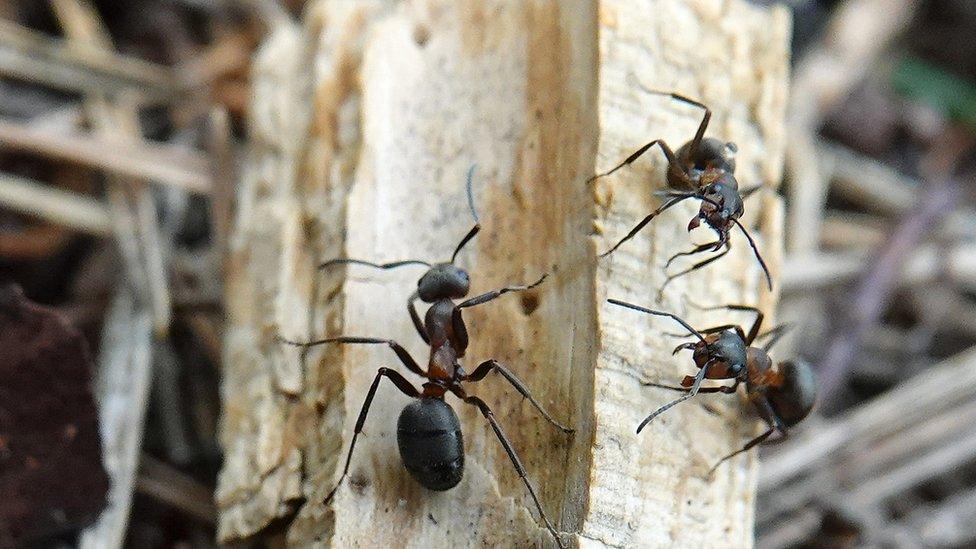Hairy ant experiment to make forest more resistant

Forestry England is moving hairy wood ants nests to Ennerdale
- Published
An experiment to make woodland more resilient has seen hairy wood ant nests relocated across forests.
Forestry England moved six colonies with thousands of ants from Cropton Forest in North Yorkshire to Ennerdale in Cumbria, in a bid to bring back lost wildlife species and support ecosystems.
Rachel Gardner, from Forestry England said the project in the Lake District would help "rebuild complex forest communities" that can better deal with extreme weather, climate change and diseases.
The organisation said hairy wood ants' nests, which are mounded and can be up to 6.5ft (2m) high, are ideal habitats for over 100 species including beetles, hoverflies, mites, woodlice and other ants.
"[Hairy wood ants] can reduce plant damage by keeping herbivorous pests away," a spokesman explained.
"However, other herbivores, with adapted ant-defences, can thrive."

Hairy wood ants nests are ideal habitats for lots of creatures
This is the second phase of the project, with nests already relocated earlier this year using a different method, and early signs suggest they had been "unaffected by the journey".
Hayley Dauben, Forestry England's species reintroduction officer who is leading the project, said they would closely monitor how the colonies establish themselves and any differences between the two methods.
"The next crucial milestone will be in April 2026 as the ants emerge from their period of winter hibernation," she added.

Hairy ants' nests can be up to 6.5ft high
Forestry England has worked on the project with the University of York.
From September, the organisations will collaborate to support a PhD to help study the wider impacts of the project at Ennerdale.
Follow BBC Cumbria on X, external, Facebook, external, Nextdoor and Instagram, external.
Get in touch
Do you have a story suggestion for BBC Cumbria?
Related topics
- Published26 April 2022

- Published15 August 2013